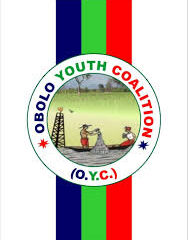Agriculture
Boosting Food Production Via Mechanised Farming
From all indications, the Federal Government has been striving to promote the food security of the country.
Observers say that the government has demonstrated its determination to boost food production in the country via its sustained support to the National Centre for Agricultural Mechanisation (NCAM), for instance.
They note that the government’s efforts are essentially based on the fact that no nation can satisfy the food requirements of its citizens it solely relies on subsistence farming.
NCAM was set up by Degree No. 35 of 1990 (now an Act of the National Assembly), with the overall objective of accelerating the pace of mechanisation in the agricultural sector.
Speaking on mechanised farming, Dr Akinwunmi Adesina, the Minister of Agriculture and Rural Development, maintained that it was only mechanised farming that could guarantee Nigeria’s food security.
The minister made the assertion recently in Ilorin during the launch of some machines developed by NCAM.
Adesina stressed that mechanisation services were included in the Growth Enhancement Support Scheme (GES) of the Federal Government’s Agricultural Transformation Agenda (ATA) because of the importance of mechanised farming.
At the event, NCAM displayed some of its innovative fabrications like Tricketor — the first made-in-Nigeria tractor.
The minister gave the assurance that the machines produced by NCAM would be distributed to 18 states across the country for endorsement and subsequent commercialisation.
However, Adesina used the occasion to assure the country’s farmers that tangible efforts were underway to supply them with quality equipment and mechanised services.
He said that the Federal Government had been able to attract AGCO, the world’s leading manufacturer of tractors, to invest about $100 million (about N16 billion) in the country.
Besides, the minister said that an all-inclusive private sector-driven equipment hiring scheme had been introduced to improve the farmers’ access to affordable mechanised services.
Adesina said that the hiring of machines would be subsidised and managed through private sector-driven Agricultural Equipment Hiring Enterprise in “priority’’ sites across the country.
He pledged that 60 of such enterprises would be established across the country and equipped with 300 units of tractors, 1, 590 planting, harvesting and post-harvesting agricultural equipment.
Adesina said that the Federal Government, in partnership with the Bank of Agriculture and the private sector would provide N3.5 billion for the programme’s implementation.
“The Federal Government will provide 35 per cent of the funds; the Bank of Agriculture will provide 35 per cent, while the private sector will provide the remaining 30 per cent as equity contributions.
“We expect that the private sector will deploy 10,000 units of tractors, planting implements, harvest and post-harvest equipment between 2013 and 2015.
“The mechanisation approach of the ministry is structured to ensure 25 per cent local content of these tractors, while 75 per cent of the parts will be imported. They shall be locally assembled on Semi-Knocked Down (SKD) and Completely Knocked Down (CKD) bases,’’ he said.
Adesina expressed the hope that the tractor hiring centres would provide about 2,000 job opportunities for the youth, while expanding cultivated land area by 150, 000 hectares.
The minister projected that the venture would add about 600,000 tonnes of food to the country’s current food stock.
Mr Ike Azogu, the Executive Director of NCAM, said that the three-wheeled mini-tractor was developed in collaboration with Bespoke Design Concept Company.
He said that most of the components of Tricketor could be locally sourced.
Azogu solicited the Federal Government’s financial support to enable the centre to duplicate 10 prototypes of the machine in the various ecological zones of the country.
He also highlighted the other achievements of the centre, which included the development of cassava peeling machine, motorised sifter, pelletising machine, cassava screw press and direct discharge multi-purpose milling machine.
Some of the machines fabricated by NCAM include maize sheller, modified multi-crop thresher, melon sheller, oil palm processing line, combined cassava grating and chipping machine, as well as motorised groundnut decorticator, among others.
Besides, Azogu said that NCAM was able to adapt and improve on some imported machines such as rice mill, oil and filter press as well as hammer mill without sieves.
Experts believe that the government’s efforts to promote mechanised farming and the achievements so far recorded by NCAM would rekindle the interest of the youth in agriculture.
The need to promote mechanised farming is, however, not a country-specific challenge, as the Food and Agricultural Organisation (FAO) says that in sub-Saharan Africa, over 89 per cent of farm power is provided by human labour.
Observers note that most Nigerian youths have jettisoned farming for other professions because of the labour-intensive nature of agriculture in the country.
However, they urge the government to sustain its efforts to boost food production in the country via sustained investment in modern farming equipment.
They add that this will not only aid Nigeria in efforts to achieve a robust agricultural sector, it will also engender food sufficiency and job creation in the country.
Dariya writes for the News Agency of Nigeria (NAN)
Veronica Dariya
Agriculture
FG, Ogun Distribute Inputs To 2,400 Farmers
Federal Government and the Ogun State Government, on Wednesday, distributed farm inputs to farmers as part of effort to address food security challenge.
The State Director, Federal Ministry of Agriculture and Food Security, Dr. Toyin Ayo-Ajayi, during the flag-off ceremony of Inputs Redemption Under The National Agricultural Growth Scheme-Agro Pocket (NAGS-AP), in Ogun State, disclosed that beneficiaries of the gesture were primarily rice, maize and cassava farmers across the State.
Ayo-Ajayi commended the Ogun State Government for partnering with the government at the centre for the effort in supporting farmers with inputs that would bring about yieldings for local consumption and likely exportation.
She noted that government is supporting rice, cassava and maize farmers with inputs worth N212,000; N189,000 and N186,000 respectively.
The Permanent Secretary in the State Ministry of Agriculture, Mrs Kehinde Jokotoye, who represented the Commissioner in the Ministry, Bolu Owotomo, stated that traditional farmers are critical in food production, hence the need to encourage and support them with inputs that would bring about desired results during harvesting.
Owotomo said: “Let us make good use of this opportunity, so that the success of this phase will make farmers benefit more from the state and federal governments of Nigeria.”
Earlier, State Coordinator, Federal Ministry of Agriculture and Food Security, Dr. Oluwatoyin Ayo-Ajayi, appreciated the present administration for partnering with the federal government for the initiative, adding that the programme is designed to support farmers at the grassroots level in cassava, rice and maize with inputs such as, seeds, pesticides, herbicides and fertilizers, to boost their production and enhance their livelihood.
Agriculture
Niger Allocates 10,000 Hectares For Smallholder Farmers
The Niger State Government has mapped out 10,000 hectares of farmland in Gbapo Community of Katcha Local Government Area of the State for smallholder farmers to benefit from the state government’s agricultural intervention programme.
Two thousand out of the 10,000 holders of the farmlands have already received inputs.
At a flag-off ceremony in Yinti Village, the facilitator of the programme, Shinkafan Nupe, Malam Idris Usman Makanta, assured the farmers of increased distributions to the mapped-out ten thousand (10,000) farmlands if farmers respond positively.
He explained that the commencement of the two thousand is to measure the positive response of farmers before obtaining full-scale support.
Malam Makanta stated that this initiative aligns with the farmers’ initial commitment through Niger Foods, whose mission is primarily geared towards establishing efficient and profitable agricultural businesses to support the present administration of Governor Mohammed Umaru Bago’s quest to boost agricultural productivity in the state.
He also commended Niger Foods for their steadfastness and resilience in the effective implementation of the input financing scheme.
Makanta reiterated the commitment of the State Governor in making judicious use of the arable land in the state.
Shinkafan Nupe, therefore, urged the farmers to support the Governor by using the inputs wisely so that the dream can be actualised.
Agriculture
GO-CARES: Gombe Empowers 573,429 Farmers, Entrepreneurs
The Gombe State Government has empowered a total of 573,429 farmers and entrepreneurs under the 4th phase of the GO-CARES programme.
The programme was officially flagged off by Governor Inuwa Yahaya in another major step towards alleviating poverty and supporting the state’s vulnerable populations.
The Governor, while inaugurating the disbursement in Akko Community of Akko Local Government Area, restated his administration’s commitment to the welfare of vulnerable citizens in the state.
He was represented by the Commissioner for Budget and Economic Planning, Salihu Baba Alkali, who is also the Chairman of the Steering Committee on GO- CARES implementation.
“The 4th phase of GO-CARES will directly and indirectly impact a total of 573,429 citizens across the state. Of these, 152,429 individuals will benefit directly through cash transfers, livelihood grants, agricultural inputs, and operational grants to small businesses”, he stated.
The Governor added that, “421,000 people will be indirect beneficiaries through infrastructural projects such as classroom blocks, healthcare facilities, WASH services, and rural infrastructure projects like culverts and drainages”.
Yahaya, reaffirmed his commitment to ensuring that the state’s most vulnerable citizens are not left behind in the state’s development.
According to him, “Earlier this year, on June 25, 2024, we flagged off the distribution of improved seedlings, fertilizers, and herbicides to less privileged farmers in Malam Sidi, Kwami Local Government Area, signaling the commencement of the 4th phase implementation of GO-CARES under Result Area 2”.
The Governor reiterated that these initiatives have had a significant impact on the livelihoods of beneficiaries and the overall agricultural sector.
He explained that, “Today’s ceremony marked the simultaneous launch of activities under all three GO-CARES Result Areas for the 4th phase. These areas include: State Cash Transfer Grants: 2,500 direct beneficiaries; Labour Intensive Public Works: 2,700 direct beneficiaries; Livelihood Grants: 10,000 direct beneficiaries; and Basic Services: 405,000 indirect beneficiaries”.
-

 Politics3 days ago
Politics3 days agoProposed States Creation: Youth Leader Lauds Nass Over Obolo State Inclusion
-

 News3 days ago
News3 days agoTreasury Bills Attract N3.22trn From Investors
-

 Sports3 days ago
Sports3 days agoNPFL: Remo Narrowly Beat Pillars 2-1 To Maintain Lead
-

 News3 days ago
News3 days agoAfDB Dissatisfied With $210m Nigeria Agro-Industrial Zones Project
-

 Niger Delta3 days ago
Niger Delta3 days agoDiri Unhappy Over Poor State Of Public Schools
-

 Editorial3 days ago
Editorial3 days agoNew Federal Varsity In Ogoni
-

 News3 days ago
News3 days agoN70,000 Minimum Wage States’ Salaries Rise By 90% To N3.8trn
-

 Oil & Energy3 days ago
Oil & Energy3 days agoWAPCo Commences Four-Week Pipeline Maintenance

